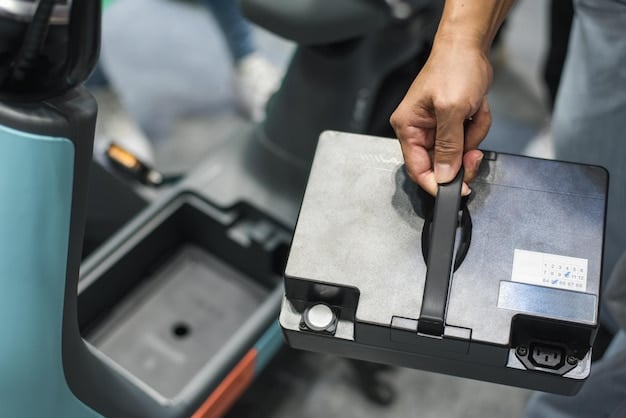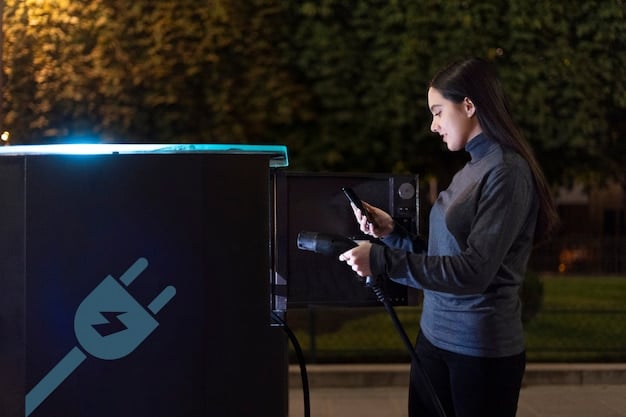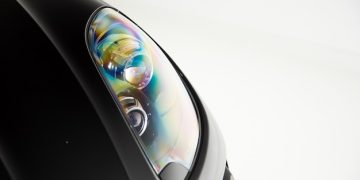Consumer Reports: Latest EV Reliability & Performance Rankings Unveiled

Consumer Reports has recently released its updated rankings of electric vehicle reliability and performance, offering insights into the best and worst performers in the EV market.
The automotive world buzzes as Consumer Reports releases its latest rankings of electric vehicle reliability and performance, setting the stage for informed consumer decisions and industry benchmarks. Discover which EVs are leading the charge and which ones might leave you stranded.
Consumer Reports New EV Reliability Rankings
Consumer Reports has recently published its latest reliability rankings, and the electric vehicle sector is under the spotlight. These rankings provide crucial information for consumers considering making the switch to electric, offering an overview of which models have proven reliable and which have not.
Understanding these rankings can influence purchasing decisions and set expectations for long-term ownership of EVs.
Key Factors in Reliability Rankings
The reliability rankings consider several factors that contribute to the overall ownership experience. These include:
- Mechanical Issues: Problems with the motor, battery, and other drivetrain components.
- Electrical System: Malfunctions related to the car’s electrical systems, including the infotainment.
- Build Quality: Issues such as squeaks, rattles, and poorly fitted panels.
These factors combine to provide a holistic view of a vehicle’s reliability.

Consumer Reports also gathers data on owner satisfaction based on their experiences. Ultimately, the newest rankings give valuable data, assisting customers in making educated decisions in a rapidly developing market.
Top Performers in EV Reliability
Several electric vehicles have stood out as top performers in the latest Consumer Reports reliability rankings. These models have consistently demonstrated superior reliability, earning high marks from owners and Consumer Reports’ testing.
These EVs are not only reliable but also known for their performance and overall driving experience.
Models with High Reliability Scores
Notable EVs that have achieved high reliability scores include:
- Tesla Model 3: The Tesla Model 3 continues to impress with its reliability and owner satisfaction.
- Kia Niro EV: Kia’s Niro EV has proven to be a reliable and efficient choice for consumers.
- Hyundai Kona Electric: Hyundai’s Kona Electric also gets high marks for its build quality and dependability.
These models often lead the pack regarding overall reliability ratings.
Consumer Reports’ reliability ratings enable customers to make educated vehicle purchase choices. The best performers constantly exhibit exceptional dependability, garnering praise from both owners and tests. These top-rated EVs offer practical and reliable options for people wishing to switch to electric mobility.
Underperformers and Areas of Concern
While many EVs have performed admirably, some models have raised concerns due to lower reliability scores. These underperforming vehicles often exhibit issues in critical areas, impacting owner satisfaction.
Identifying these areas of concern can help prospective buyers make informed decisions and avoid potential pitfalls.
Common Issues in Less Reliable EVs
Common issues found in less reliable EVs include:
- Battery Degradation: Faster-than-expected battery degradation can impact range and performance.
- Software Glitches: Frequent software updates and glitches can be frustrating for owners.
- Charging Problems: Issues with charging speed and compatibility can hinder the ownership experience.

These problems can detract from the benefits of owning an EV and lead to dissatisfaction.
Consumer Reports’ most recent dependability rankings allow for educated purchase selections in the rapidly developing EV sector. By being aware of typical issues and areas of concern connected with less dependable EVs, would-be purchasers may make well-informed decisions and avoid potential concerns.
Performance Metrics: Acceleration and Handling
Beyond reliability, Consumer Reports also evaluates the performance of electric vehicles, focusing on metrics such as acceleration and handling. These factors play a significant role in the overall driving experience and are important considerations for many buyers.
Understanding how EVs perform in these metrics can help buyers choose a vehicle that meets their driving preferences.
EV Acceleration and Handling
Electric vehicles have an advantage in acceleration due to the instant torque provided by electric motors. Consumer Reports tests evaluate:
- 0-60 mph Times: Measures the speed to reach 60 mph, highlighting quick acceleration.
- Handling Characteristics: Assesses the vehicle’s responsiveness and stability on the road.
- Braking Performance: Evaluates stopping distances and overall braking effectiveness.
These tests provide a comprehensive view of an EV’s performance capabilities.
Consumer Reports’ analyses of performance criteria guarantee that customers are well-prepared to pick a car that meets their demands and tastes in the rapidly changing EV market. Buyers may confidently select an EV that delivers an amazing driving experience by knowing about acceleration, handling, and other performance qualities.
Consumer Satisfaction and Ownership Experience
Consumer satisfaction is a critical aspect of evaluating electric vehicles, reflecting the overall ownership experience. Consumer Reports gathers data on owner satisfaction to provide insights into how well EVs meet the expectations of their owners.
High satisfaction scores indicate that owners are pleased with their purchase and would recommend the vehicle to others.
Factors Influencing Satisfaction
Key factors that influence consumer satisfaction include:
- Driving Experience: The EV’s overall performance and handling.
- Comfort and Convenience: Features such as seat comfort, cabin noise, and ease of use.
- Technology and Features: The effectiveness and reliability of the vehicle’s technology.
These factors contribute to the overall satisfaction of EV owners.
Consumer Reports’ investigations into owner satisfaction allow potential buyers to make informed decisions in the ever-changing EV sector. By analyzing the aspects that influence satisfaction, customers may confidently select an EV that fits their demands and preferences, ensuring a happy and pleasurable ownership experience.
Future Trends in EV Reliability and Performance
The electric vehicle market is rapidly evolving, with continuous improvements in reliability and performance. Emerging trends are expected to shape the future of EVs, offering even greater reliability and enhanced driving experiences.
Staying informed about these trends can help consumers make future-proof purchasing decisions.
Emerging Trends in EV Technology
Emerging trends in EV technology include:
- Solid-State Batteries: Promising longer ranges, faster charging, and improved safety.
- Over-the-Air Updates: Enhancing vehicle performance and features through software updates.
- Advanced Driver-Assistance Systems (ADAS): Providing increased safety and convenience features.
These innovations are set to redefine the EV landscape.
Consumer Reports’ analysis of future developments will enable customers to make well-informed decisions in the EV sector as it evolves at a rapid rate. People will be able to confidently choose EVs that provide even greater dependability and overall enjoyment as a consequence of increasing advancements and improvements.
| Key Point | Brief Description |
|---|---|
| ⚡ EV Reliability | Consumer Reports assesses EV reliability based on owner surveys and testing. |
| 🏆 Top Performers | Models like Tesla Model 3 and Kia Niro EV show high reliability scores. |
| ⚠️ Common Issues | Battery degradation and software glitches can affect EV ownership. |
| 📈 Future Trends | Solid-state batteries and Over-the-Air updates are emerging. |
Frequently Asked Questions
▼
The rankings focus on assessing the reliability of electric vehicles based on factors such as mechanical issues, electrical systems, and build quality.
▼
Models like the Tesla Model 3, Kia Niro EV, and Hyundai Kona Electric frequently receive high reliability scores from owners and testers.
▼
Common issues include rapid battery degradation, software glitches, and complications with charging speed and compatibility across different charging stations.
▼
Consumer Reports evaluates performance through metrics like 0-60 mph times, handling characteristics, and braking performance to assess overall driving experience.
▼
Trends such as solid-state batteries, over-the-air updates, and advanced driver-assistance systems are anticipated to redefine the EV landscape.
Conclusion
Consumer Reports’ latest rankings provide essential insights into the reliability and performance of electric vehicles, helping consumers make informed decisions. By considering the top performers, underperformers, and emerging trends, buyers can confidently navigate the EV market and choose a vehicle that meets their needs and expectations.





